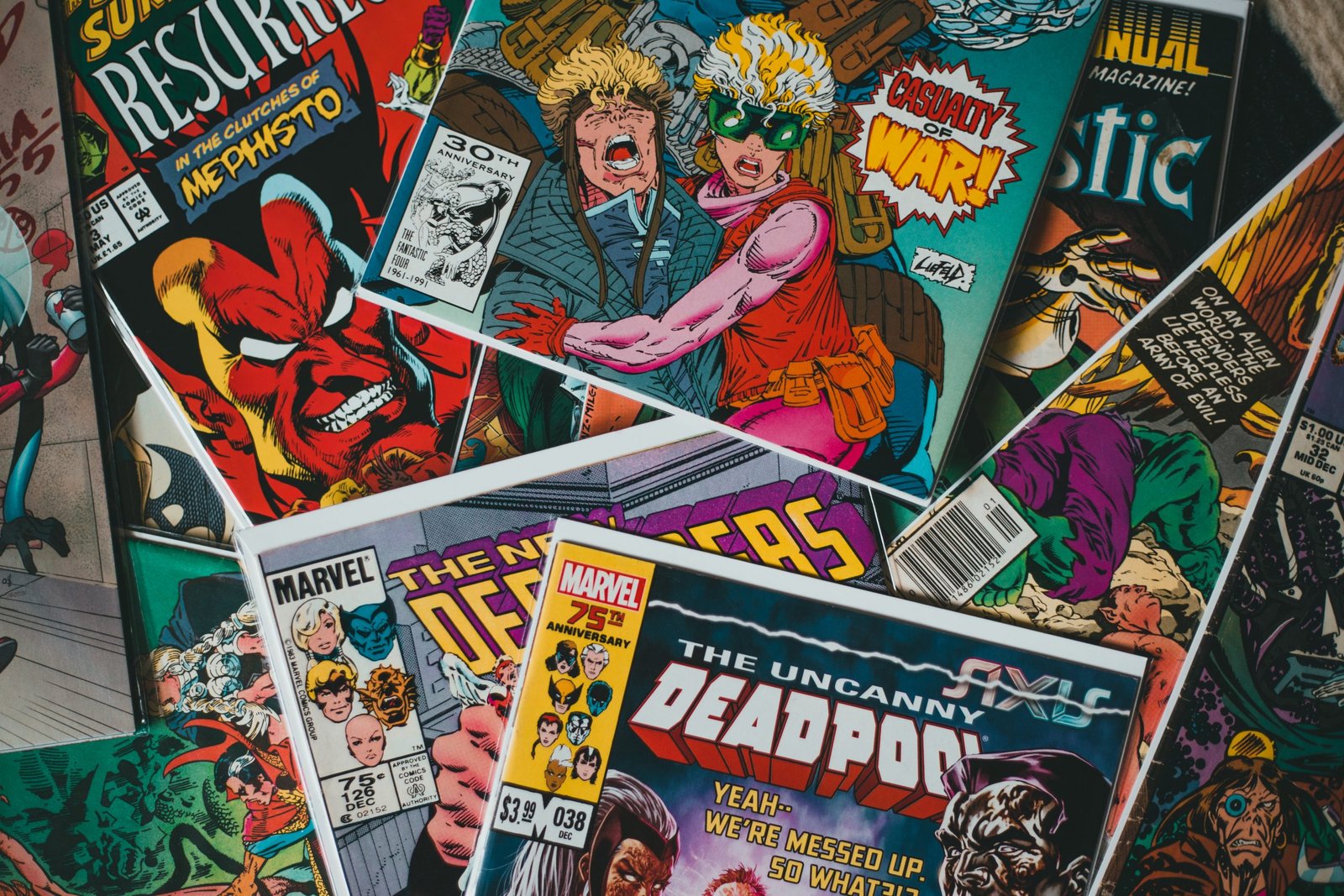
Why 1960s Marvel Comics Are Defining Modern Culture: Our Interview With The Hosts Of Super Serious 616 Podcast
Edward Nevraumont & Michael Kealy are starting at the beginning of the Marvel Universe: Fantastic Four #1, November 1961. But rather than just talking about the issue from the outside, the hosts act as if they are “in the comic book world” in their Super Serious 616 Podcast.
They observe the events of the issue that would be “public-facing”, and then they discuss what the ramifications these comic-book events would have on the everyday world.
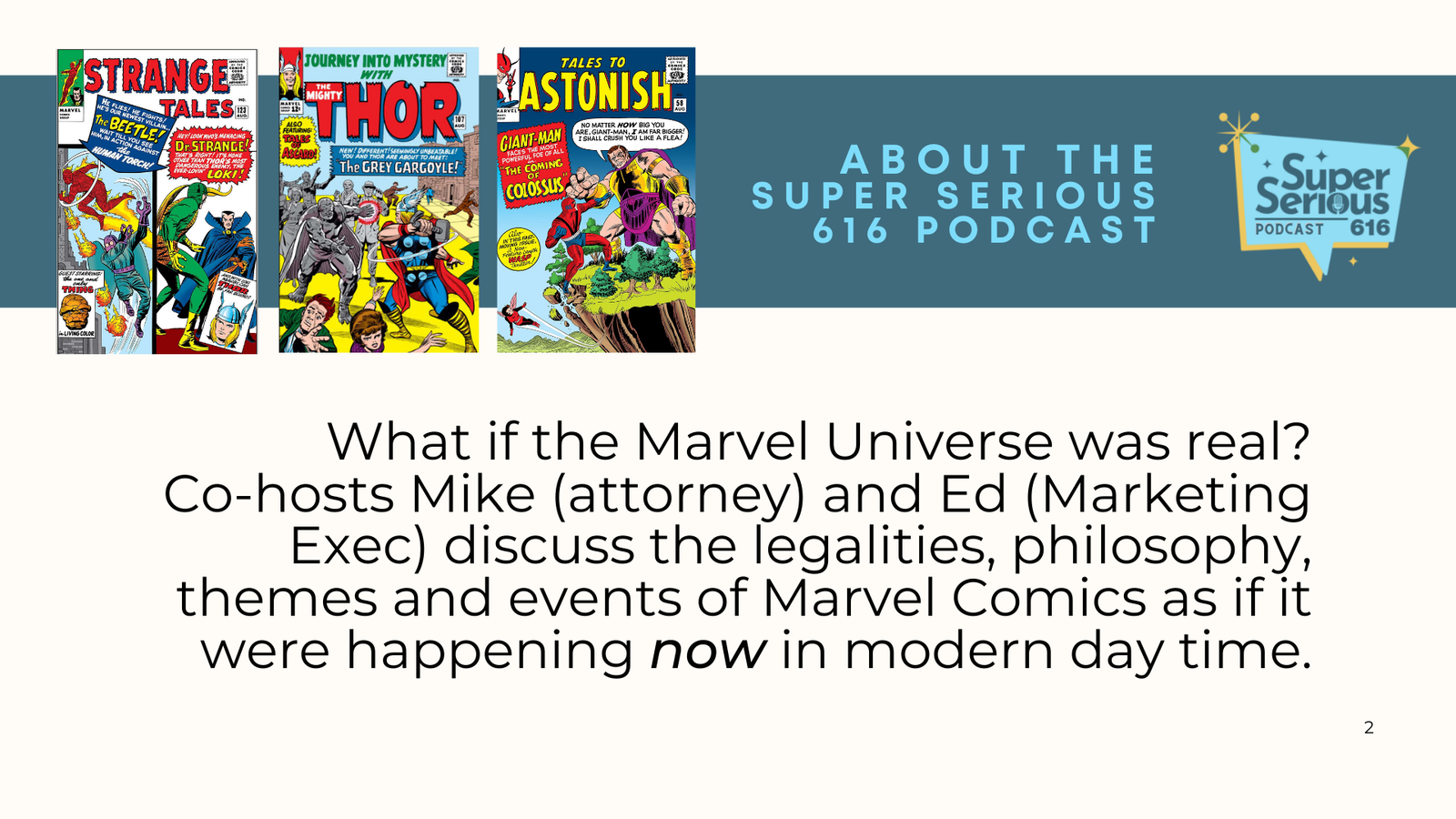
We interviewed with Mike and Ed about their journey through podcasting.
What inspired you all to start this podcast?
It was originally Edward’s idea. One day he was listening to a podcast called “Dithering”, which is two smart people commenting and discussing the latest technology news in short 15-minute episodes. “What if we did THIS, but for what was happening in the superhero world?”. The rest was logistics to make it happen.
Have you always been comic book fans? When did this fandom begin for each of you?
Edward bought his first comic when he was seven years old and it was an Encyclopedia of the Marvel Universe. Comics quickly became his childhood fixation and he collected every new appearance of The Avengers, Captain America, X-Factor, and Spider-Man. Comics took a back-seat somewhere in high school, but he is excited to get back into them, covering them from the very beginning on his podcast, The Super Series 616 Podcast, with his co-host, Michael. No one has ever reviewed each Marvel comic book the way we are doing it on the podcast.
For Michael, he got really into comic books when he discovered a box of old comics at his family’s cottage. From there, he was hooked to the creative might of Stan Lee, Jack Kirby, and other giants at Marvel. The stories were fun (Interstellar battles! Time travel! Adventure!) and timeless in many ways, mainly because they were relatable. The characters have only become more interesting as many creators have added to the world’s oldest ongoing story.
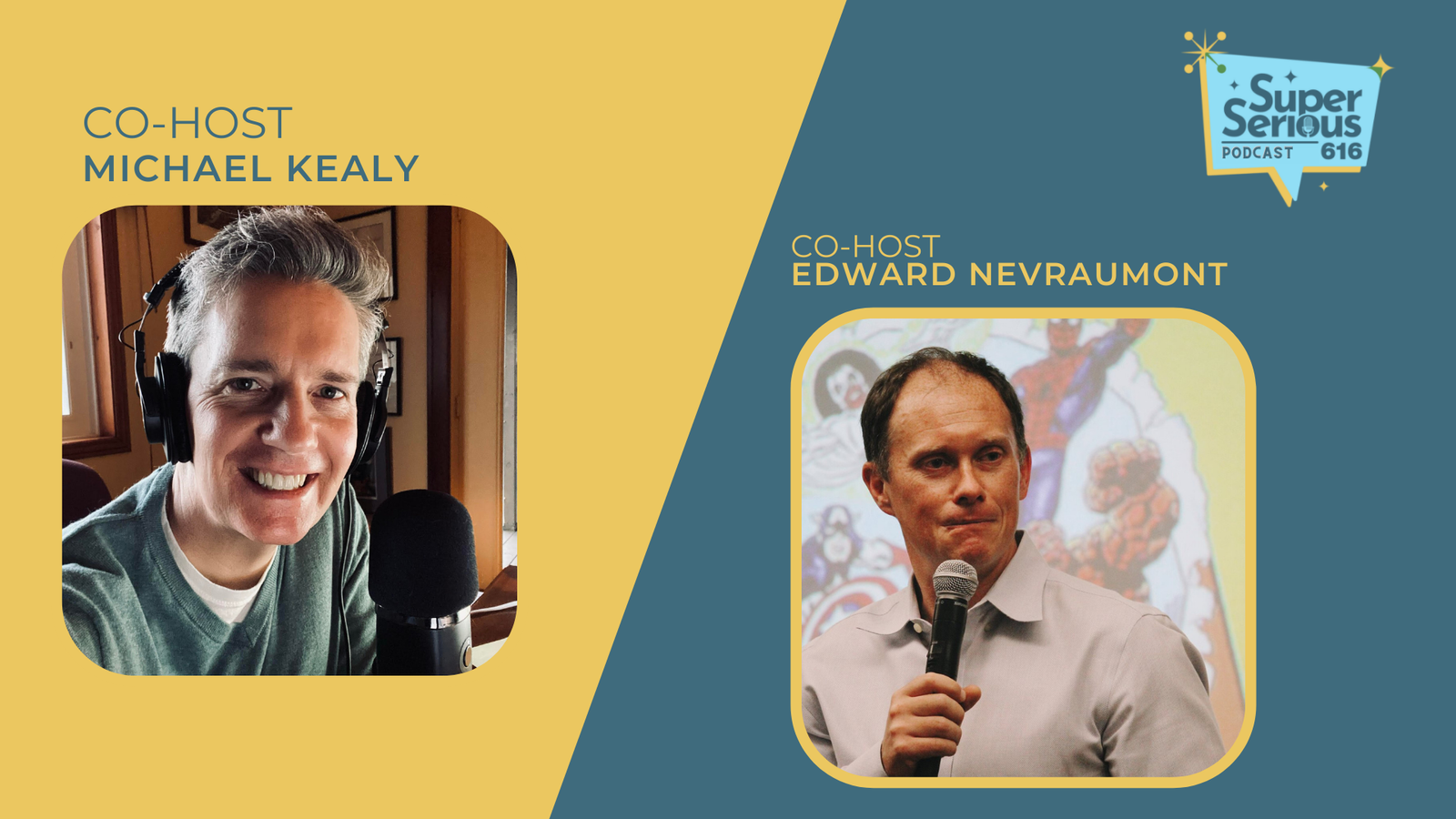
How did the two of you come together to start this podcast?
We went to college together a long time ago. We have stayed friends ever since, even though we live on opposite sides of the continent now– Michael lives in Toronto, Canada, and Edward lives in Seattle, Washington. The podcast is a good excuse for the two of us to stay in touch on a more regular basis.
What do you envision for the podcast long-term?
In the long run, we are all dead. But seriously, we plan on having a ton of fun with the show before that happens! Exploring every comic book from Marvel and using our real-world legal and business backgrounds to ask crazy questions like, “Does Spiderman have health insurance? How do these guys file their taxes?” It’s a fun, ironic podcast that has become quite entertaining for ourselves and our listeners. We moved through 1961 and 1962 very quickly, but Marvel increased the frequency of their issues in 1963. We are now almost done 1964, but it will take a couple of years to work our way to 1968. In 1968 Marvel went a little nuts with the number of titles. We may need to re-evaluate the show when we get there!
Are you open to hosting guests on the podcast? If yes, what are some dream guests you would love to have one day?
We have experimented with guests. Our most successful was an “out of character” interview with successful Marvel comic creators where we talked about the impact of Jack Kirby – Marvel’s primary artist in the period we talk about (and creator of The Eternals). But we haven’t done much beyond that. It’s our perspective that there are lots of people doing interview podcasts, so maybe we will stick to the unique thing that only we are currently doing.
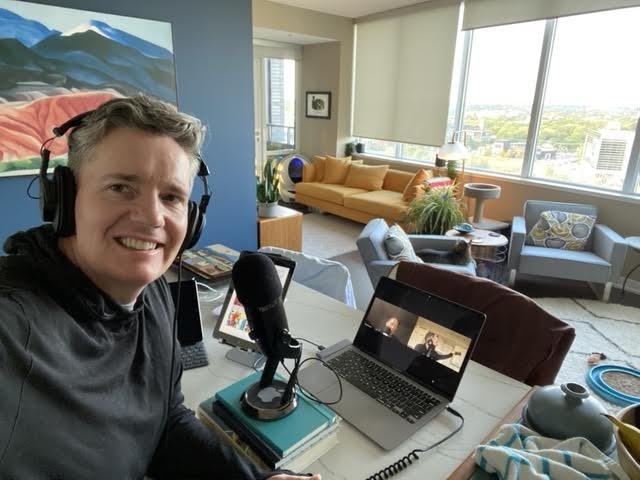
How would you describe the podcast to people who like Marvel movies, but haven’t gotten into the fandom full throttle yet?
The Marvel movies have done a reasonable job of dealing with the ratifications of the events from the comic books. The alien attack on New York is a big deal in many movies and TV shows beyond the event itself in the first Avengers movie. The original comics generally did NOT do this. When Giganto levels Lower Manhattan in Fantastic Four #4, and the Thing sets off a nuclear bomb inside its belly, the long-term impact is just ignored. Our podcast talks about what the ramifications of those types of events could be. We take the work done by Stan Lee seriously. What IS the legal structure for the Avengers? Who owns the patents for Reed Richards’s work? In Iron Man an employee or a contractor, and why would that matter? We love to explore the business aspects of these crazy events and the wild world of the Marvel Universe. While every episode is directly tied to the comic, we hope that the principles we discuss have broader implications in the “real” world.
Have you all ever been to Comic-Con and do you intend to go this year? Provide details if possible.
Edward went to the San Diego ComicCon in 2017, where he traded in his old Magic the Gathering collection for a series of early Marvel issues. He is now the proud owner of Avengers #1, Amazing Fantasy #15, X-Men #1, and Tales of Suspense #57. The comic book collecting industry is quite big, and we’re both proud of our collections. Edward has also been trying to track down key issues of Marvel’s old Western Cowboys. His theory is that sooner or later, Disney will make a movie starring Kid Colt, the Two-Gun Kid, and the Rawhide Kid, so he is attempting to corner the market on their very rare (but not TOO expensive) first appearance.
If ComicCon would like to host a live performance of our show, we would do our best to be there this year! Mike is envious of Ed’s comics collection, although he has some excellent finds from his three decades of collecting.
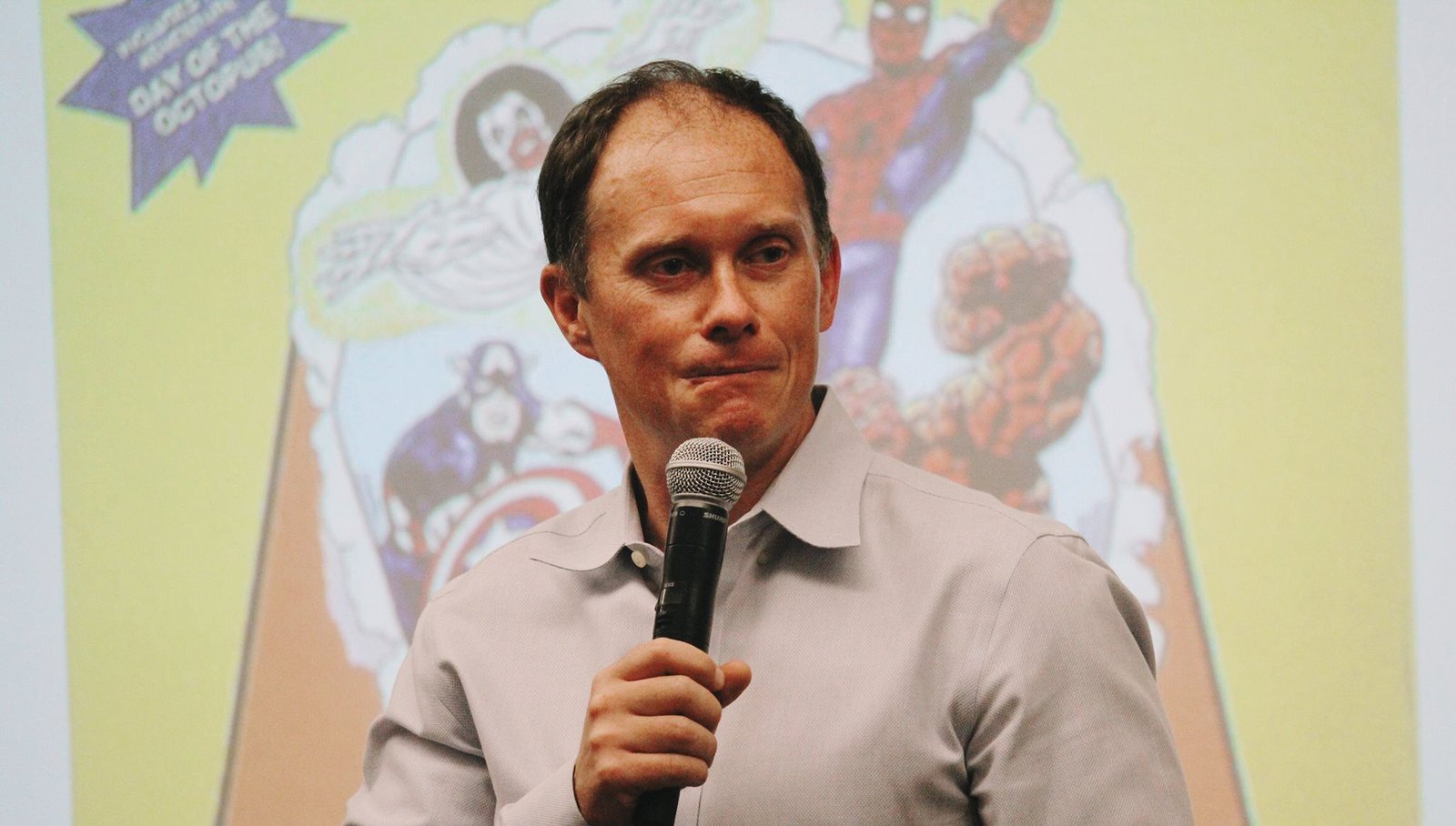
Growing a podcast in 2022 can be competitive and at times challenging— what are some tips you have for other business executives or professionals who want to get into podcasting?
Even if you have a unique idea and a quality product, don’t expect that to be enough to earn an audience instantly. Most people who listen to podcasts have already filled their “podcast listening time” with the content producers they enjoy. A new listener to your podcast usually means they STOPPED listening to something else they like.
I always encourage other podcasters to think about WHY you are making the podcast. A podcast can be a great way to engage with a niche audience you already have on social media.
Why do you think Marvel has had such a cultural impact on billions of people around the world of all ages?
The original stories that have been passed down for millennia are all part of linked universes. There are many Greek myths – The Trojan War, the 12 Labors of Hercules, the taming of Pegasis, Icarus and flying too close to the sun, defeating Medusa, and on and on. They are all stand-alone tales, but they all exist in the same “world” and the characters from one story interact with characters from others. The same is true about all the ancient myths and legends around the world. It is only in the modern era that culture has moved to more self-contained tales. Marvel Comics, and to a lesser extent DC Comics, really went back to the origins of how stories were told. 60 years of comic book storytelling laid the groundwork for the cinematic universe. What Kevin Feige has done is use those 60 years of stories as the raw material, or “R&D” to pull out the best to make into movies. By maintaining a minimum quality bar, he has created a universe as rich as anything told by the ancient Greeks or Norse (and both the comics and the MCU steal liberally from those ancient myths as well – Thor being the obvious example, but there will be many others in the next few years)
Who are your favorite Marvel characters and why?
Michael: I was drawn to the X-Men when I was a kid. At the time, the original X-Men formed a new team, X-Factor, and the premise, in the late 80s, was that mutants were being persecuted simply for being different. That resonated with me as a young teenager, and it still does. While the characters had amazing and unique abilities, and the storylines were quite operatic in nature, the core element of the stories was that being different may lead to challenges but it should be celebrated. Of course, everyone loves Wolverine – he is the best there is at what he does – and I was no different. Not only was he Canadian, but his character was complex and nuanced. He was not necessarily a purely good man, in the black-and-white sense, but rather a layered character who lived an exciting life of adventure and romance but occupied an internal world of regret and remorse. His character connected with me more in my later teenage years, when I was trying to figure out who I was while experiencing my own triumphs and making my own mistakes. And so I would say it is the X-Men that I still gravitate towards as a comic book fan. Always have, always will.
Ed: My tendency on these types of questions is to be contrarian: “Sure Spider-man, X-men, and the Avengers are the most popular, but a true connoisseur knows that a character like Cypher [a Chris Claremont-created mutant whose only is the ability to instantly understand and communicate in any language] is under-appreciated by the masses for x y and z reasons.” But in this case, I think the popular imagination has it right. I think the greatest superhero ever created was the original Spider-man. The early Spider-man comics still hold up today in a way the other issues at the time do not. The art was excellent (Ditko was slow, so the issues were not as frequent as the other titles, but he made up for it in quality).
The villains were iconic (The twenty issues of Spider-man featured battles with the Chameleon, Vulture, Dr Octopus, Sandman, Dr Doom, Lizard, Electro, Mysterio, Green Goblin, Kraven the Hunter, and Scorpion. No other title threw out anywhere close to that many tier-one villains so quickly. In the same time period the Fantastic Four had Dr Doom, Submariner, Puppet Master, Red Ghost, The Thinker, Molecule Man and The Impossible Man… and the other titles are even worse). But the biggest reason Spider-man rises to the top is how his secret identity was handled. Rather than being an after-thought, or a source of assets, Spider-man’s secret identity defined the character. Most other issues at the time climaxed on the last page and reserved only the final panel for the “epilogue”. But Spider-man usually defeated the villain of the month and still had 4-6 pages left in the story. We get to read, not just about how Spider-man defeated the villain, but how that fight affected the life of Peter Parker (and it usually wasn’t good).
Almost all good comic books today spend time helping the reader build a developed understanding of the protagonist, but Spider-man, or rather, Peter Parker, was where it was done first. Every time a new issue spends time with the human behind the mask, it is paying homage to what Lee and Ditko built with the original Spider-man.
If you use a different player and you can’t find the show, you should be able to add it manually through this link: https://api.substack.com/feed/podcast/295684.rss

If you are looking for a specific episode – or episodes about a specific character – we maintain a (somewhat) regularly updated index of all the episodes recorded sorted by character and theme.
In the meantime, tell your friends!
Connect With The Super Serious 616 Podcast!
Website| Instagram| Facebook| Twitter| Spotify
